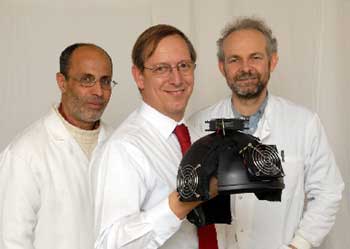Research at Sunderland University has shown that regular exposure to low level infra-red light can improve learning performance and kick-start the cognitive function of the brain.
And now human trials are to start to see if the treatment could provide a cure to illnesses like Alzheimers. Experts claim that early stage dementia patients should see an improvement in their cognitive function within four weeks, by wearing a lightweight helmet in their home for just ten minutes a day.
Dr Gordon Dougal, a director of Virulite - a medical research company based in Newton Aycliffe, County Durham, came up with the idea of using a safe level of infra red light on the human brain after it had proved effective in the treatment of cold sores - a process that relies on boosting the cells within the body responsible for killing the virus, rather than attacking it.
Human testing of the infra-red treatment on the brain is due to start this summer and medical experts hope this will halt and even reverse the effects of dementia.

Dr Dougal claims that ten minutes of exposure to the infrared light daily would have the desired effect on the brain. 'Currently all you can do with dementia is to slow down the rate of decay - this new process will not only stop that rate of decay but partially reverse it,' Dr Dougal said.
Further research work will continue in this area, funded by CELS, who support Healthcare research and development in universities, hospitals and companies within the North East of England.










C2I 2024 STEM initiative winner: Weston College
In my first year at a ´Technical Grammar´ School age 11 the metalwork curriculum included making a number of small projects using lathe, pedestal...